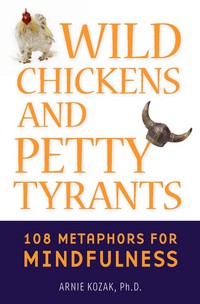Center of all centers, core of cores,
almond self-enclosed and growing sweet —
all this universe, to the furthest stars
and beyond them, is your flesh, your fruit.
Now you feel how nothing clings to you;
your vast shell reaches into endless space,
and there the rich, thick fluids rise and flow.
Illuminated in your infinite peace,
a billion stars go spinning through the night,
blazing high above your head.
But in you is the presence that
will be, when all the stars are dead
Rilke suggests that the Buddha, the “awakened one”; the thathagata, “the one who has gone thus” has accessed something cosmic, universal, and transcendent. What Rilke neglects to say is that the Buddha was nothing special. Of course, on the one hand, he was special. He was willing to forsake everything he had and had known in pursuit of the truth. He was a spiritual revolutionary and taught a radical new way of seeing the world. On the other hand, he was an ordinary man who practiced a methodology that he taught to others. Following the path the Buddha taught, anyone can make the same discoveries. That includes you and me.
What is this awakening? Again, here, it’s something that is simultaneously commonplace and extraordinary. When we think of the Buddha’s accomplishment as “enlightenment” rather than the more accurate “awakening” it takes on more of this special sense–enlightenment as something that happens to you or a place that you get to. In Zen, the teaching is that we are already enlightened and if we are enlightened then there is nothing to do to get enlightened. We experience this enlightened nature when we get out of our own way as might happen during zazen.
The term enlightenment has a different connotation as reflected in this quote from Larry Darrel in the W. Somerset Maugham’s The Razor’s Edge:
Only my overwhelming sense of its reality. After all it was an experience of the same order as the mystics have had all over the world through all the centuries. It’s impossible to deny the fact of its occurrence; the only difficulty is to explain it. If I was for a moment one with the Absolute or if it was an inrush from the subconscious of an affinity with the universal spirit which is latent in all of us, I wouldn’t know”
This sounds like enlightenment as turning on a switch and suddenly seeing clearly what was obscured before. This sense of enlightenment sounds like it should be accompanied by fireworks or a parade. In the more ordinary sense of awakening, we move in and out of enlightenment all the time. Any time the stories stop, we have a taste of the absolute. And this can happen anywhere. I am reminded of Dr. Suess’s beloved story, Green Eggs and Ham.
I could not, would not, in a house.
I would not, could not, with a mouse.
I would not eat them with a fox.
I would not eat them in a box.
I would not eat them here or there.
I would not eat them anywhere.
I would not eat green eggs and ham.
I do not like them, Sam-I-am.
Just substitute in reverse fashion:
I could awaken in a house.
I could awaken with a mouse.
I could awaken with a fox.
I could awaken in a box.
I could awaken here or there.
I could awaken anywhere!

